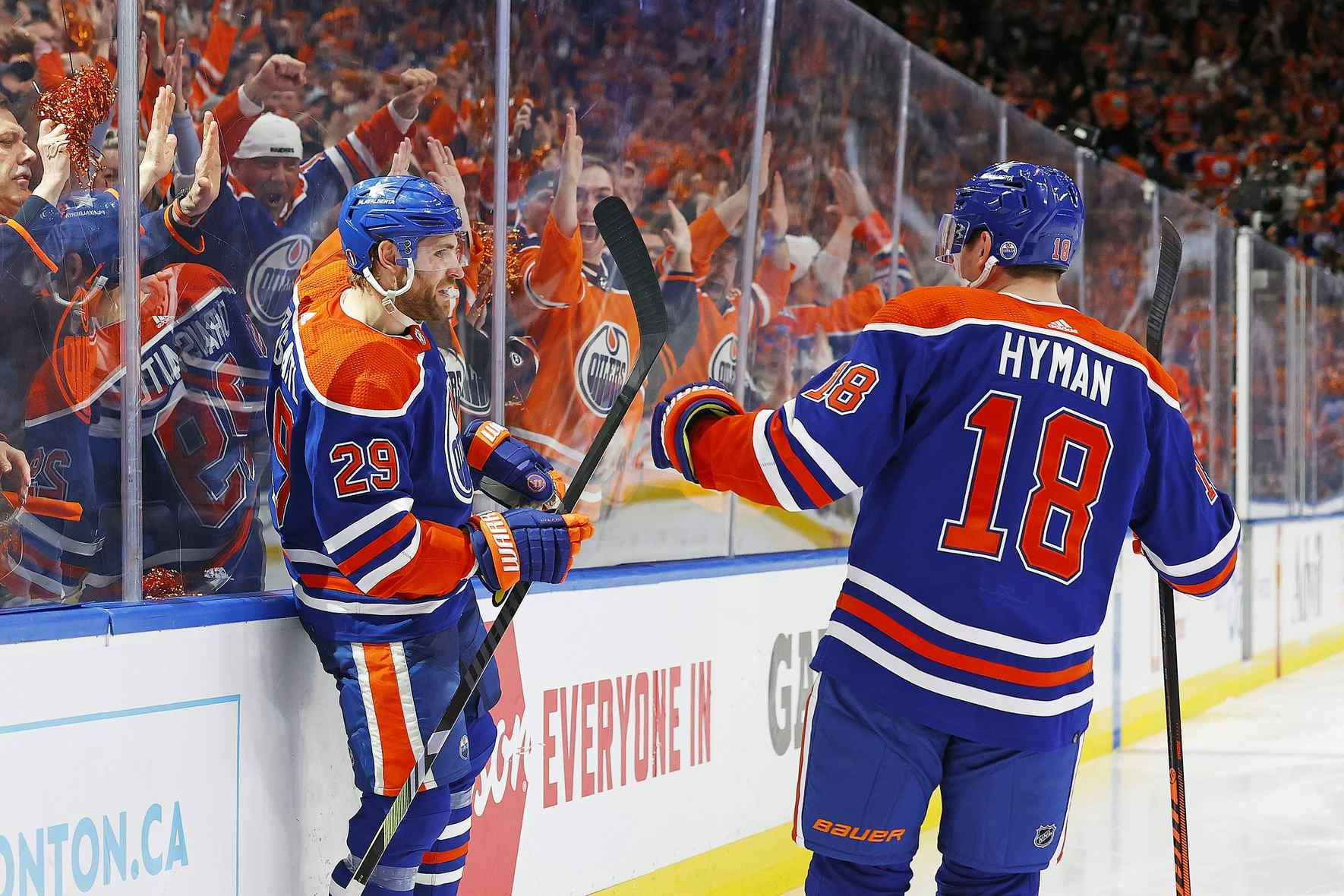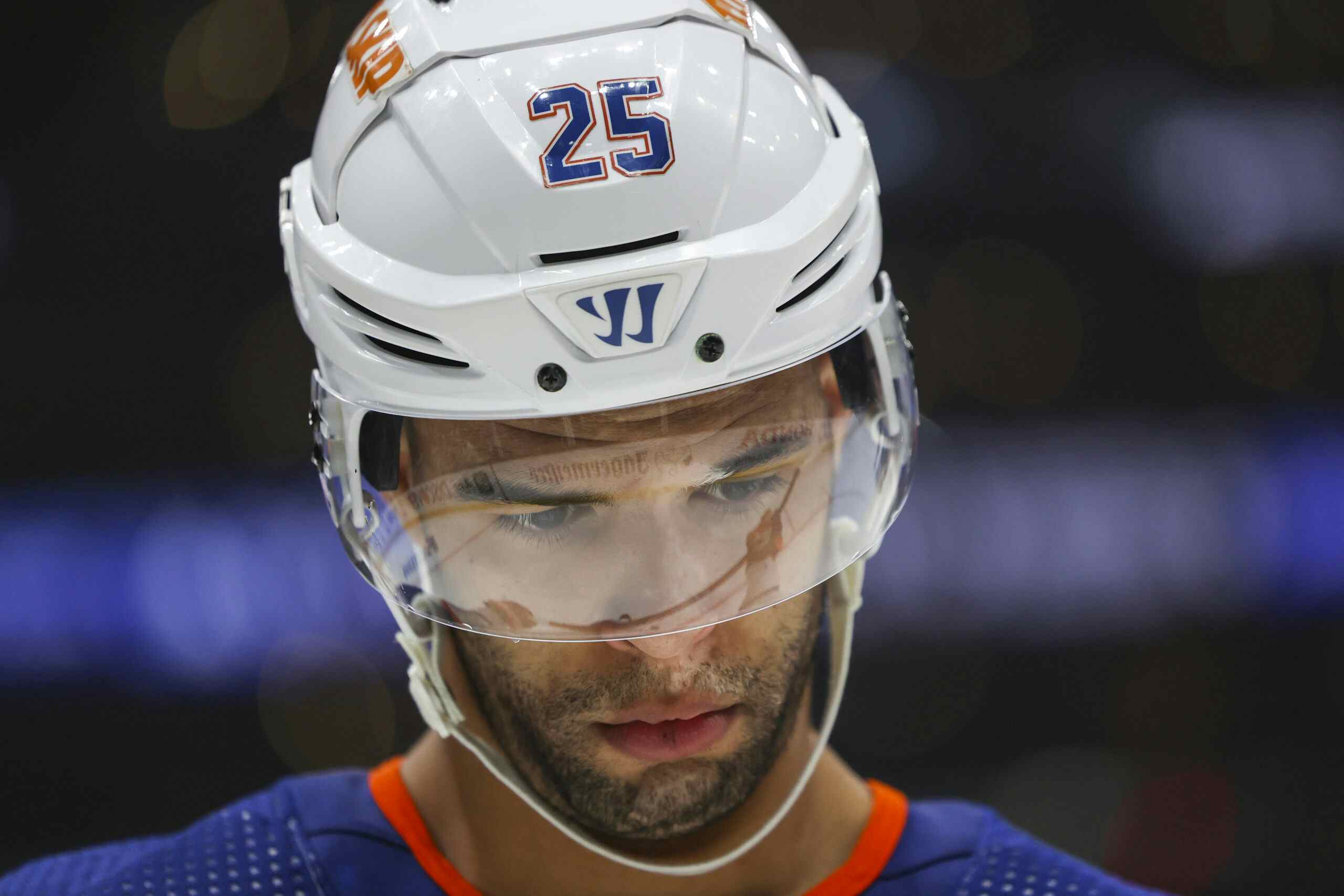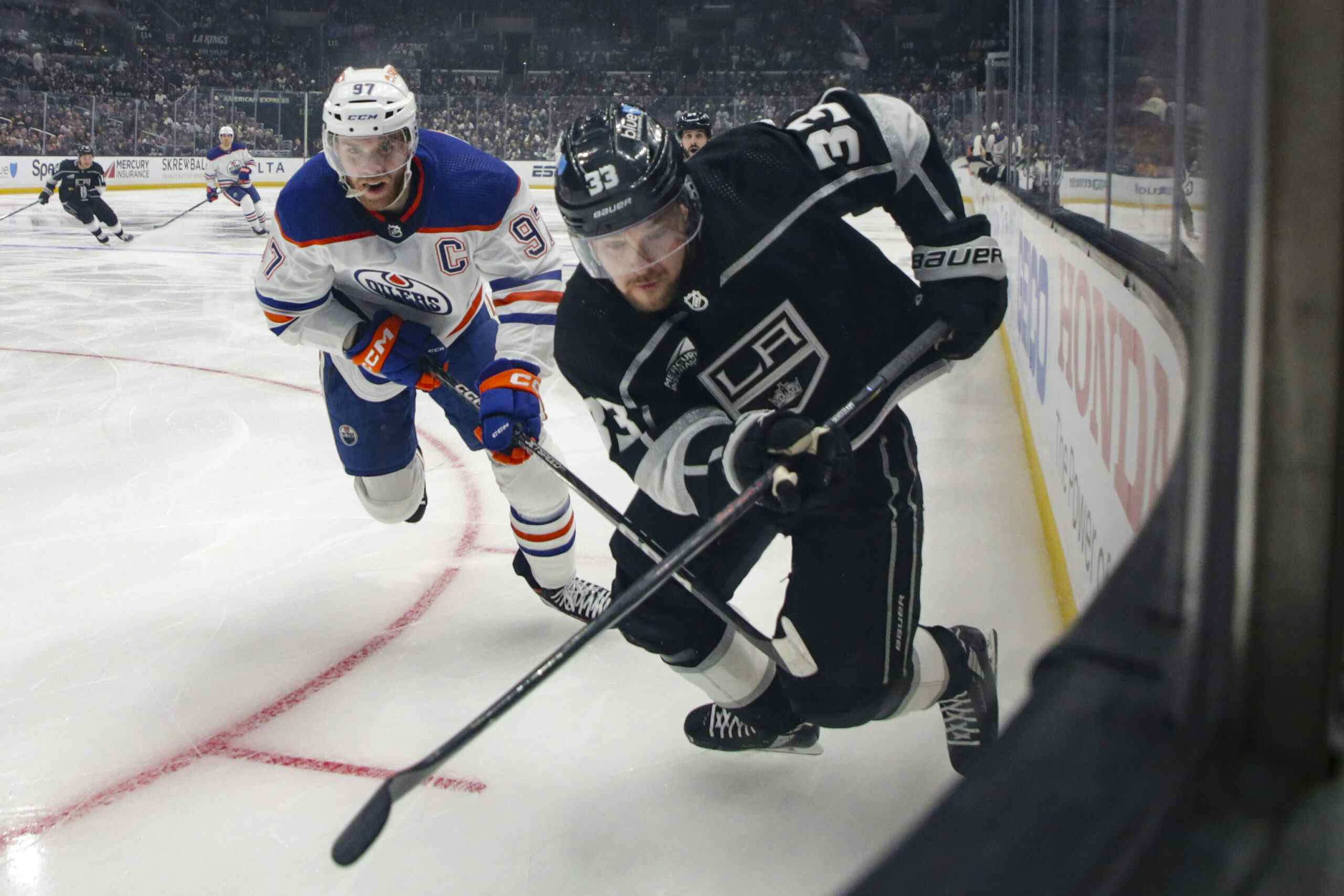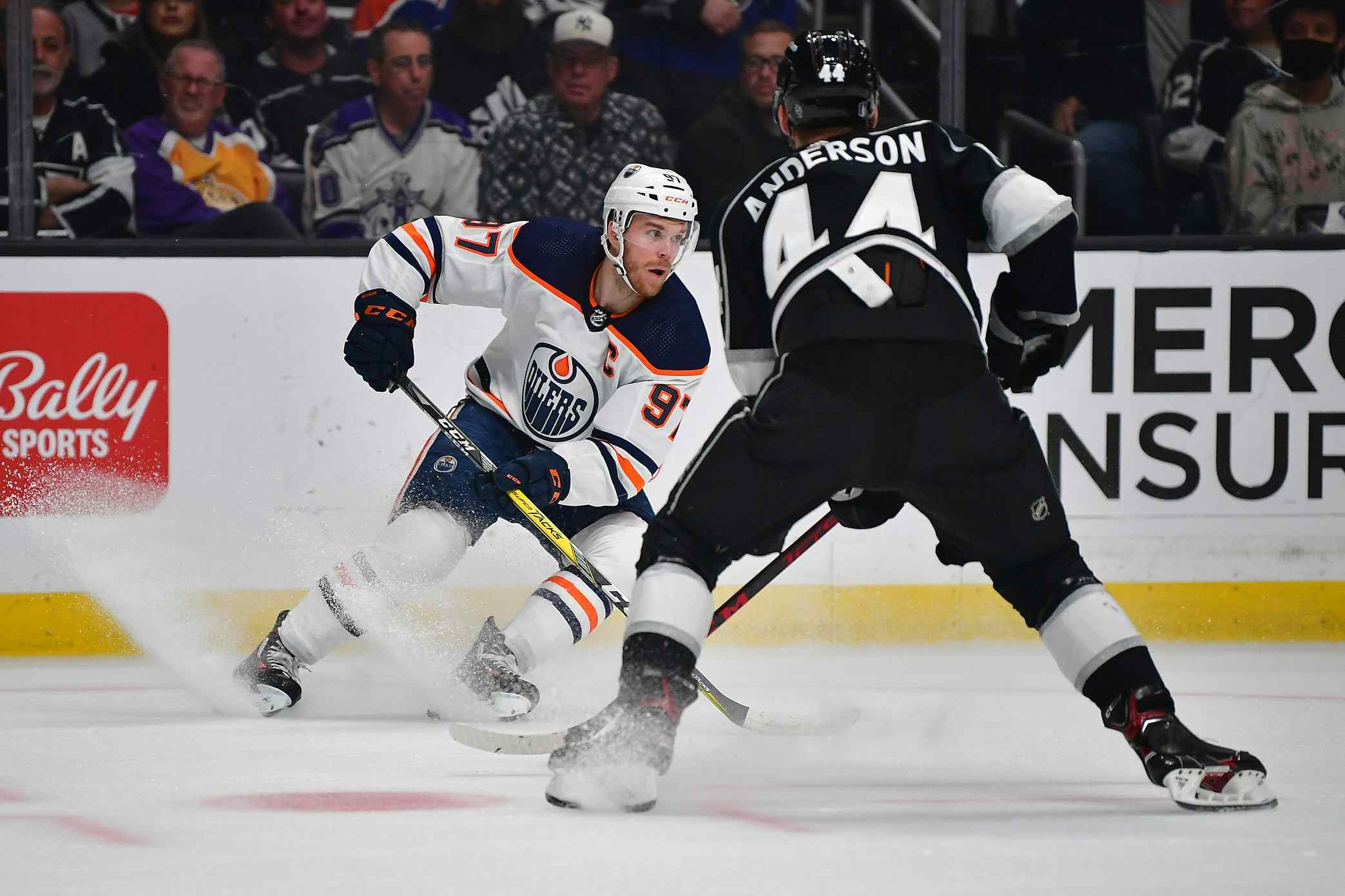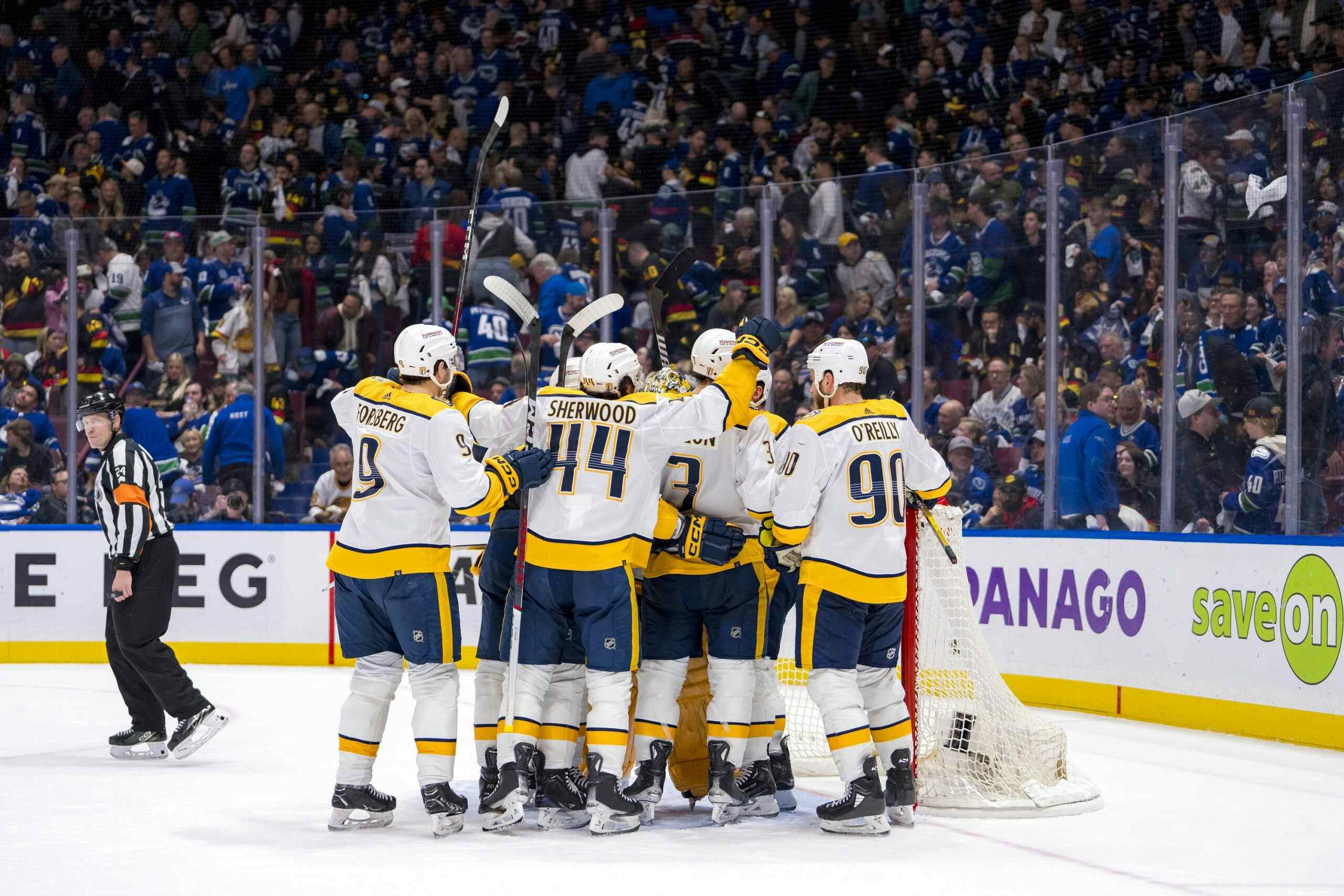Monday Mailbag – How Important is a Captain?
By baggedmilk
7 years ago

Everyone quiet down — it’s time to learn something! As always, I’ve taken five of your questions and sent them off to our panel of Nation writers to give their input and worldly wisdoms. I need questions for next week so if you have something you’d like to ask you can email me at baggedmilk@oilersnation.com or hit me up on Twitter. Without further adieu, the Mailbag. Enjoy.
1) Spencer asks – How much importance do you think the captaincy have on an NHL team? Does it make a difference, inside the room, that he was a new player this year? With McDavid expected to get the “C” I can’t help but wonder how important a captain actually is.
Lowetide:
I don’t really know, but can say that over the years of watching and reading interviews there are leaders who clearly have an impact on the roster. If you ever read or hear players talk about Lee Fogolin, or Gretzky, or Messier, it is clear. I think McDavid gets more respect than others his age simply because he is so good at a very difficult game, and that is obvious already in comments from Steven Stamkos to Todd McLellan.
Jonathan Willis:
I imagine it varies from team-to-team and captain-to-captain. I will say this, though: conventional hockey wisdom never undervalues intangibles.
Matt Henderson:
I’ve never been an NHL player, but I’ve been on teams in both sport and professional life with poor leadership. It isn’t pleasant to have false leaders who are placed in a position of prominence when they aren’t deserving of the honour. So in that sense I think it’s important to have a good captain. McDavid is unquestionably the best player on the team and the future of the NHL. He’ll be a good captain.
Robin Brownlee:
The “C” on the jersey doesn’t mean nearly as much as the person wearing it — or not wearing it, for that matter. Leaders will lead whether they have a letter or not.
Chris the Intern:
McDavid will be the captain because he is an inspiration with his on-ice game and work ethic alone, so I wouldn’t say that the importance of a captain is irrelevant just cause a 19-year old is getting it. At the same time, I think no matter who wears the C and As, there are always going to be veteran guys leading the group in and out of the room.
Baggedmilk:
I assume the captain is the most important man alive and that’s why we’re making such a big deal of it! In seriousness, I think that the captain is important because it’s the person that is expected to set an example for the other players. Even if a guy isn’t a big talker, they can still lead by example through practice habits and work ethic.
2) Braden D. asks – With Connor McDavid, Ryan Nugent-Hopkins, and Leon Draisaitl all playing in the World Cup of Hockey, they will miss some time at Oilers training camp. Instead of learning systems, doing drills, and gaining chemistry with teammates they will be in the World Cup shaking off rust and playing at the highest level of competition. Assuming no injuries, do you think their involvement in the tournament will be an advantage or disadvantage to start the season?
Lowetide:
It is a great question, Braden. I think it helps and hurts. Helps in that these guys are going to be playing high level hockey before pre-season. Negative in that chemistry takes time, and Lucic-McDavid may not be a thing until late September.
Jonathan Willis:
An advantage, assuming Nugent-Hopkins or McDavid doesn’t get injured blocking a Shea Weber slap shot. I think it’s generally an advantage in the early going to have some competitive hockey under your belt.
Matt Henderson:
No concerns for RNH and McDavid. One is too good for chemistry to matter, the other has been around long enough that missing a couple days wont hurt anything. Draisaitl is more concerning because he will need to find new chemistry with a winger of lower caliber than his last partner. Still, neither team Europe nor North America are expected to be in the tournament for long.
Robin Brownlee:
Slight advantage. Better competition at the World Cup than against pre-season line-ups half-full of guys who won’t be around on the opening night of the regular season.
Chris the Intern:
This is a good question. It obviously has it’s pros & cons. I would almost rather have our guys in Edmonton, practicing and training with the boys. But then they threw this fancy, ‘young stars’ team in front of my face, and now I’m hooked on the tournament.
Baggedmilk:
I think it will help those guys because they’ll be playing actual games rather than practices. Nothing gets a guy’s timing back faster than playing games and I think the World Cup players will have a slight edge in that department. That being said, I expected the Oilers to be good after the lockout shortened year where Hall, Nuge, Eberle, and Schultz were down in OKC.
3) Frank asks – Pretend that you are Peter Chiarelli for a moment. Which is more detrimental to your franchise, signing a player to bad contract or not signing a player to a good one and letting him walk? Do you have an example?
Lowetide:
I would say not signing a good player to a contract. Losing Jeff Petry meant more damage than signing a free agent you can hide, or trading for Lauri Korpikoski.
Jonathan Willis:
It really depends how bad the contract is. David Clarkson is a great example of just an awful, awful deal; that’s the kind of thing general managers do when they think only of the short-term and fixate on a specific player. On the other hand, I’ll argue until the cows come home that letting Jeff Petry walk was far more damaging to the Oilers than signing Nikita Nikitin was.
Matt Henderson:
It’s six of one and half-dozen of the other. I guess because you already have McDavid and he needs to be paid then signing someone to a bad contract is really going to hurt. Example, if Edmonton screws up by paying the fourth line too much or Nurse more than he’s worth then it might end up costing Draisaitl in a year or two.
Robin Brownlee:
Both are bad ideas. The degree depends on the specific player involved. Not re-signing Curtis Glencross comes to mind. He was a useful player who went on to play seven good seasons with Calgary. Nikita Nikitin. Andrew Ference.
Chris the Intern:
No matter what you do, MSM and Twitter will implode on the decision. I think it all depends on circumstances of the team, contract, player, etc. For example, I am glad we signed Lucic to an arguably long contract than to have him walk away.
Baggedmilk:
How about making bad trades? That can hurt too! *dodges shrapnel*
I think overpaying a player and having them play too high in the roster is worse than letter a player go for free. Not only does it take away opportunity from other players, it hampers the team capwise. Tambo and MacT were the emperors of making this happen.
4) That Oilers Dude asks – In your opinion, what was the moment where the Oilers broke? Was it the Pronger trade? Ryan Smyth? When did the wheels fall off?
Lowetide:
The moment they traded Chris Pronger without having a veteran cover for those minutes. It was like jumping out of the window from 30 stories up. Even signing Jaroslav Spacek would have eased the burden. Instead, Ladislav Smid replaced him—and Laddy wasn’t ready for the NHL, let alone replacing Pronger.
Jonathan Willis:
July 31, 2008. That’s the day the Oilers hired Steve Tambellini to manage the team. The summer transaction period was pretty much done at that point, so Tambellini didn’t have a chance to hire a coach past his sell-by date, dismantle the rebuilt defence or start bringing in stick-optional free agents and old, injury-prone goalies. The Oilers of 2007-08 and 2008-09 were well on the way to recovery from the post-Pronger disaster. Tambellini started remaking the club in the summer of 2009, and it has been an NHL laughingstock ever since.
Matt Henderson:
It’s probably Pronger, but I think the spirit of the franchise was murdered when Smyth was traded. I knew they were lost and without a map when they buried Souray in the minors. Wheels off when Ference named captain.
Robin Brownlee:
It hasn’t been one bad trade or one off-season. It’s been a decade of incompetence — broken up by some good acquisitions by GM Kevin Lowe during the 2005-06 season — because of bad management. Pronger leaving, though, was obviously a pivotal moment in the mess.
Chris the Intern:
I want to say it was the Pronger trade. He was such a big part of our playoff run, and his trade pretty much began the deterioration of the “playoff” team.
Baggedmilk:
Where to start? Tambellini’s Era of Evaluation was horrible and he’s still assessing why. MacT couldn’t shut his mouth. The Ryan Smyth trade ripped the team’s heart out. Pronger was the best player they’ve had in decades. There are so many spots that you can pick of where things went wrong that I don’t think I can pinpoint just one moment.
5) Stephanie asks – My husband is from England and new to hockey. What are three important rules or tips that I can give him to help him get up to speed?
Lowetide:
1. Pick a favorite team and watch them all the time, paying special attention to the nuance of the game and obscure rules.
2. Enjoy the hell out of your team when they are winning, and specific players who drive results or have huge defensive impact.
3. Learn to drink heavily.
Jonathan Willis:
It’s pretty intuitive. Offsides, icings and the difference between two- and five-minute penalties are probably the most essential rules to understand what’s going on.
Matt Henderson:
Rule 1 – Offside and Icing – I’m cheating by combining them but he needs to know why the whistle is blowing and what the lines on the ice are for.
Rule 2 – Interference/hooking/holding vs hitting – It’s all about who has the puck and who doesn’t and how you go about slowing that person down. Sometimes it’s super great when an Oiler hits someone. Other times that hit was by Gryba and the puck was 50 feet away and now we have to kill a penalty.
Tip – It’s probably Yakupov’s fault. Even if it isn’t because he’s not on the ice, you’re safe taking that position. Nobody will question you.
Robin Brownlee:
The Oilers will break your heart.
When they do, don’t waste time bitching about Kevin Lowe.
The previous two rules are Horcoff’s fault.
Chris the Intern:
1. Save yourself the trouble and jump on a Stanley Cup bandwagon team.
2. If he’s on Twitter I would recommend staying off of it, or have absolutely zero exceptions for people.
3. Join a beginner rec team! There’s no better way to understand the sport, then to play it yourself.
Baggedmilk:
Tip 1: Learn basic rules like penalties, offsides, icings. Once you get the basics the rest will all start to make sense.
Tip 2: Like a better team than the Oilers, Connor notwithstanding. Actually, I’d recommend that your husband look at the last team to win the Stanley Cup and follow them. Chances are he’ll have a better time.
Tip 3: If you do decide to cheer for the Oilers be sure to have another hobby on standby. There will be some nights when you don’t know why you’re torturing yourself and it’s nice to have something else in the cards for when you get mad.
Recent articles from baggedmilk

